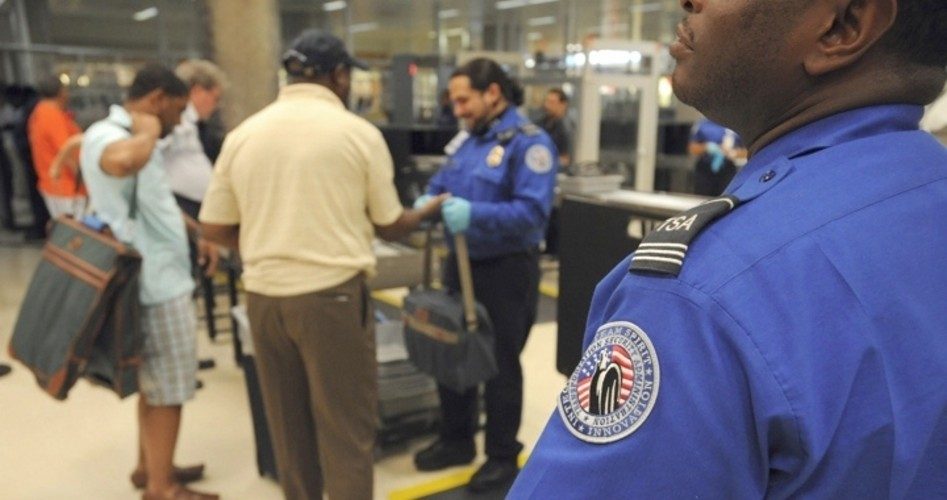
In response to an “Opt Out and Film” national campaign that encourages airline passengers to opt out of the naked-body scanners and film TSA screeners, the Transportation Security Administration has retracted its approval of filming its procedures at security checkpoints.
Prior to announcement of the campaign, the TSA had advised on its website:
TSA does not prohibit the public, passengers or press from photographing, videotaping or filming at security checkpoints, as long as the screening process is not interfered with or slowed down.
Efforts to see that version of the webpage now lead to a 404 error page; however, Archive.org’s cache of the old page can still be viewed.
Critics contend that the TSA has deleted its “approval” from the website in response to the Opt Out and Film Campaign, led by InfoWars.com and Alex Jones, which is set to launch during Thanksgiving week in November. It encourages people to opt out of the naked-body scanners because the machines increase the risk of cancer, the scanners’ photographs are an invasion of privacy, and because the TSA’s invasive procedures are intended to force compliance rather than promote security.
The campaign is asking fliers instead to film procedures taking place at security checkpoints. According to the organizers, filming the TSA will hold them accountable and help protect the rights of passengers.
Campaign organizers pointed to the TSA’s “approval” on the website prior to its being taken down. Paul Joseph Watson wrote on InfoWars.com, “The TSA’s own website admits that it is not illegal to film TSA agents.”
But InfoWars.com also notes reports that despite what TSA’s website had indicated, TSA agents have threatened travelers who either film screening procedures or “dare to display a ‘bad attitude’ while they are being harassed.”
Likewise, the TSA has contradicted the policy posted on its website of “not prohibit[ing] the public, passengers or press from photographing, videotaping or filming at security checkpoints” by placing signs at checkpoints ordering passengers not to film.
Regardless of changes to the TSA’s website or security checkpoint signs, however, passengers have a right to film TSA agents at work, according to a First Court of Appeals decision last year. The court wrote:
The filming of government officials engaged in their duties in a public place, including police officers performing their responsibilities, fits comfortably within these principles [of protected First Amendment activity].
Gathering information about government officials in a form that can readily be disseminated to others serves a cardinal First Amendment interest in protecting and promoting the free discussion of governmental affairs.
A 2010 National Opt Out Day proved to be successful and generated significant media attention. Mike Adams of NaturalNews.com reported on the success of that campaign at the time:
Anticipating a nationwide grassroots surge of protests against naked body scanners and aggressive pat-downs, the TSA simply turned off its naked body scanners on Wednesday and let air travelers walk right through security checkpoints without being X-rayed or molested.
All across the country, air travelers are reporting that the TSA simply deactivated the naked body scanners and let people go right through without a scan. “Backscatter scanners are off. No scan. No patdown,” reported a traveler from the Seattle airport. “Backscatter machines aren’t being used at LAX,” reported another traveler. “They’re all roped off.”
Whether this year’s National Opt Out Day will be equally successful remains to be seen, but organizers hope to see passengers reassert their First and Fourth Amendment rights in November.
Photo: A Transportation Security Administration officer at the security checkpoint at Hartsfield-Jackson Atlanta International Airport on August 3, 2011 in Atlanta: AP Images




